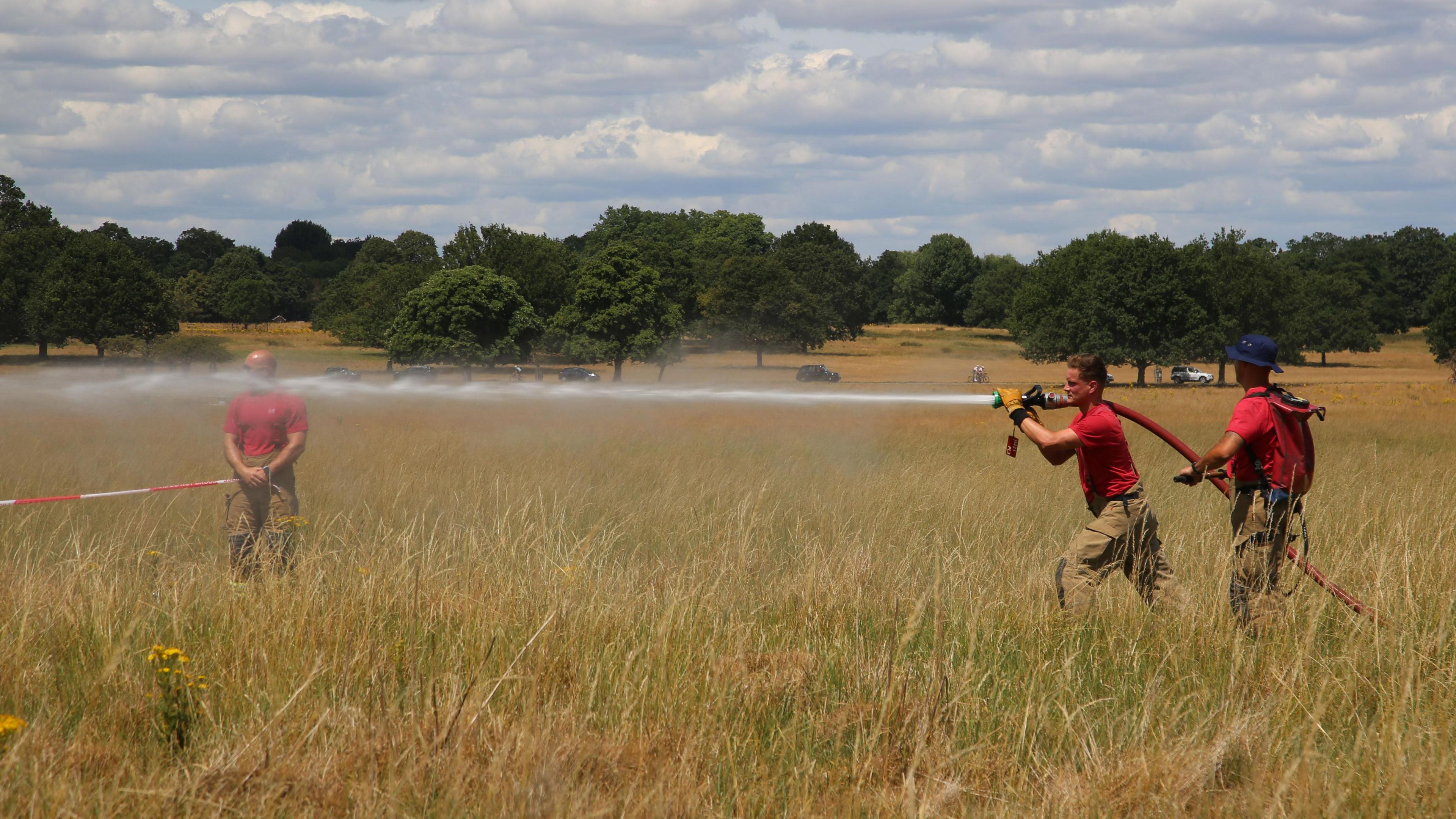London Fire Brigade sees busiest summer since 2022
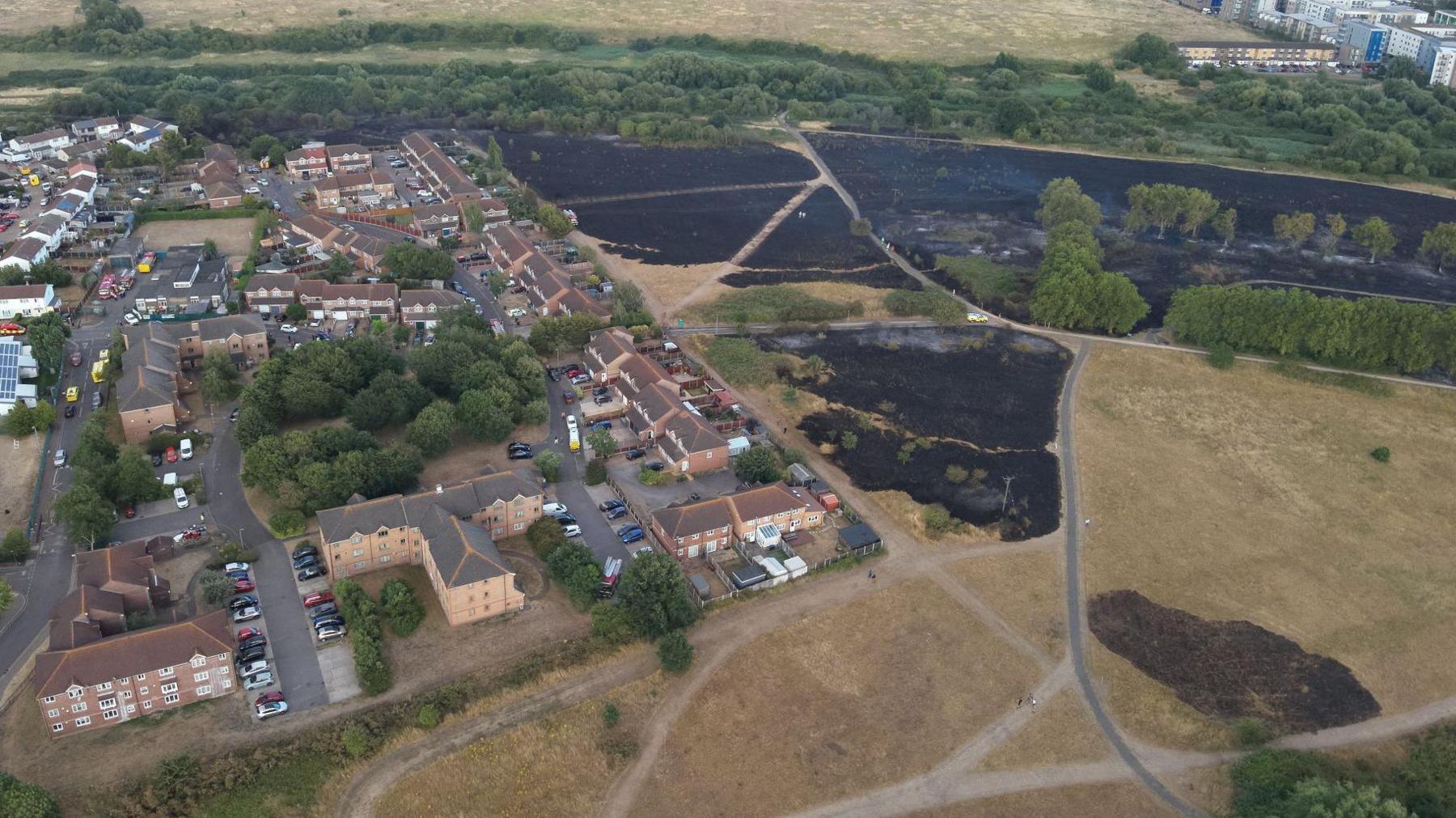
A wildfire near a housing estate in Dagenham in July saw 25 fire engines and about 125 firefighters attend
- Published
The London Fire Brigade (LFB) has had its busiest summer since the extreme heat of 2022, with 83 wildfires in the capital between June and August.
This was more than the summers of 2023 and 2024 combined, although was much lower than the 161 wildfires recorded in summer 2022.
The most significant fire saw 25 fire engines and about 125 firefighters called to a grass fire in Dagenham on 14 July, at the height of the third heatwave of the year.
The LFB said new equipment, improved training and prevention steps had helped to stop damage to properties, but that climate change had increased the risk of wildfires.
The summer of 2022 saw London experience its hottest days on record, with temperatures reaching 40C on 19 July 2022.
On that day, the LFB attended 1,146 incidents across London and received 2,670 calls.
Although temperatures in 2025 have not reached the extreme highs of 2022, this summer was nonetheless the UK's hottest on record, according to the Met Office.
There was also an unseasonably dry spring — also the UK's hottest on record — and there have been 117 wildfires in London so far this year, as of the end of August.
Across one long weekend in April, the LFB received 2,215 calls, including 65 outdoor fires — up 30% on 2024.
Is climate change to blame?
Climate scientists from the Met Office said that climate change had made summers as hot or hotter than this year 70 times more likely.
Last month, researchers at Imperial College London said rising temperatures caused by climate change were creating new phenomena called "firewaves" that threaten UK cities.
London fire commissioner Jonathan Smith warned that climate change was causing drier and hotter conditions that increased the risk of wildfires.
These conditions mean that, when a grass fire occurs, it is more likely to spread quickly and turn into a wildfire, because the grass is so dry.
The LFB said this was particularly dangerous in London, where green spaces are often right next to residential or commercial properties, meaning that fires can spread beyond open spaces.
Has the British summer changed beyond recognition?
- Attribution
- Published24 August
As UK faces third heatwave, is this 'just summer'?
- Attribution
- Published11 July
They also warned that fires are commonly caused by human behaviour, whether accidental or deliberate.
According to the LFB, more than 80 fires in green spaces in London have been recorded as deliberate since the start of June.
Mr Smith encouraged people to take steps to prevent wildfires from happening in the first place, such as avoiding using disposable barbecues, carefully discarding their cigarettes, and ensuring rubbish isn't left around.
How has the fire brigade responded?
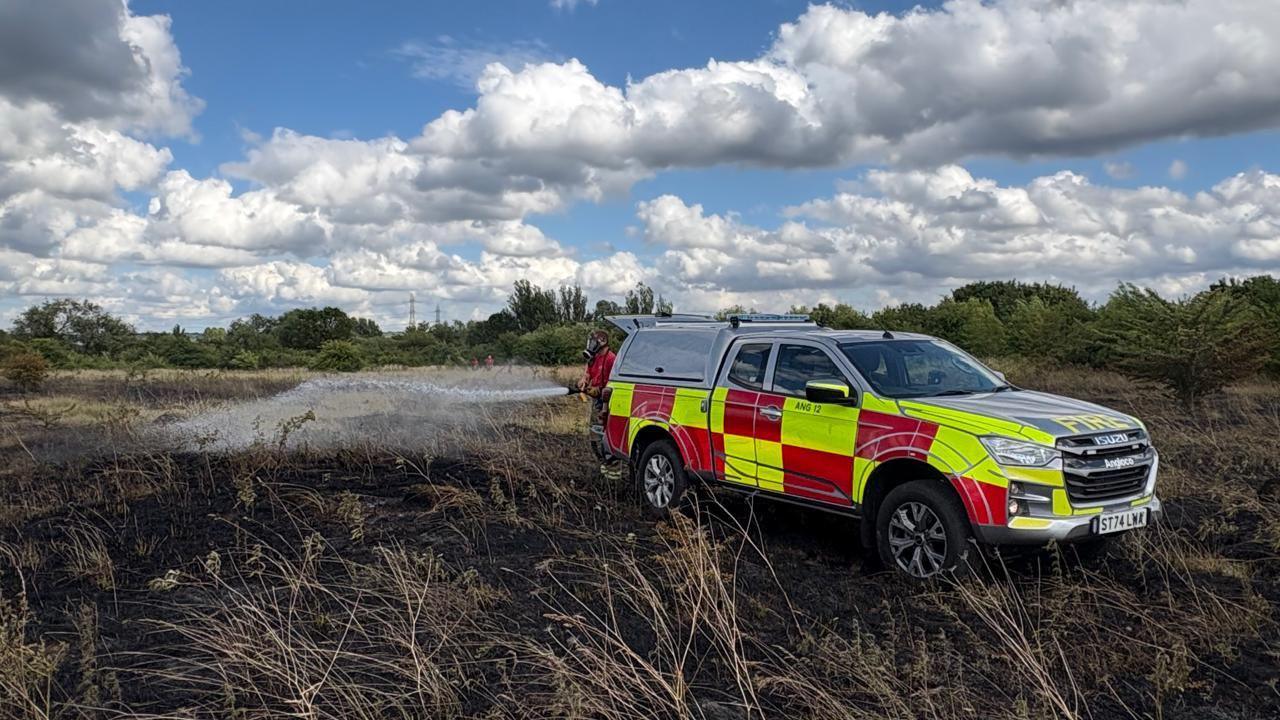
The LFB's new wildfire response vehicles attended about 50 incidents, helping to reach places a standard fire engine cannot
The LFB said it had continued its trial of new wildfire response vehicles this summer, which attended about 50 incidents.
These are light, agile off-road vehicles that can reach places that standard fire engines struggle to get to.
They were deployed to the Dagenham fire on 14 July, as well as to support other fire services, including at a major incident at Langdale Moor in North Yorkshire in August.
The LFB also attributed its success in preventing the spread of the Dagenham fire to prepared fire breaks, put in place by the council in collaboration with the brigade.
Creating these fire breaks involves cutting and removing grass or ploughing earth to remove any flammable vegetation, reducing or eliminating the fuel available for the fire to consume.
This acts as a natural barrier to prevent the easy spread of fire, particularly to nearby residential areas.
New technology has been rolled out by the LFB, including drones to provide real-time aerial mapping and specialist hoses.
The LFB also advised councils ahead of the summer to take greater precautionary measures, such as increasing the frequency of rubbish clearance and banning disposable barbecues.
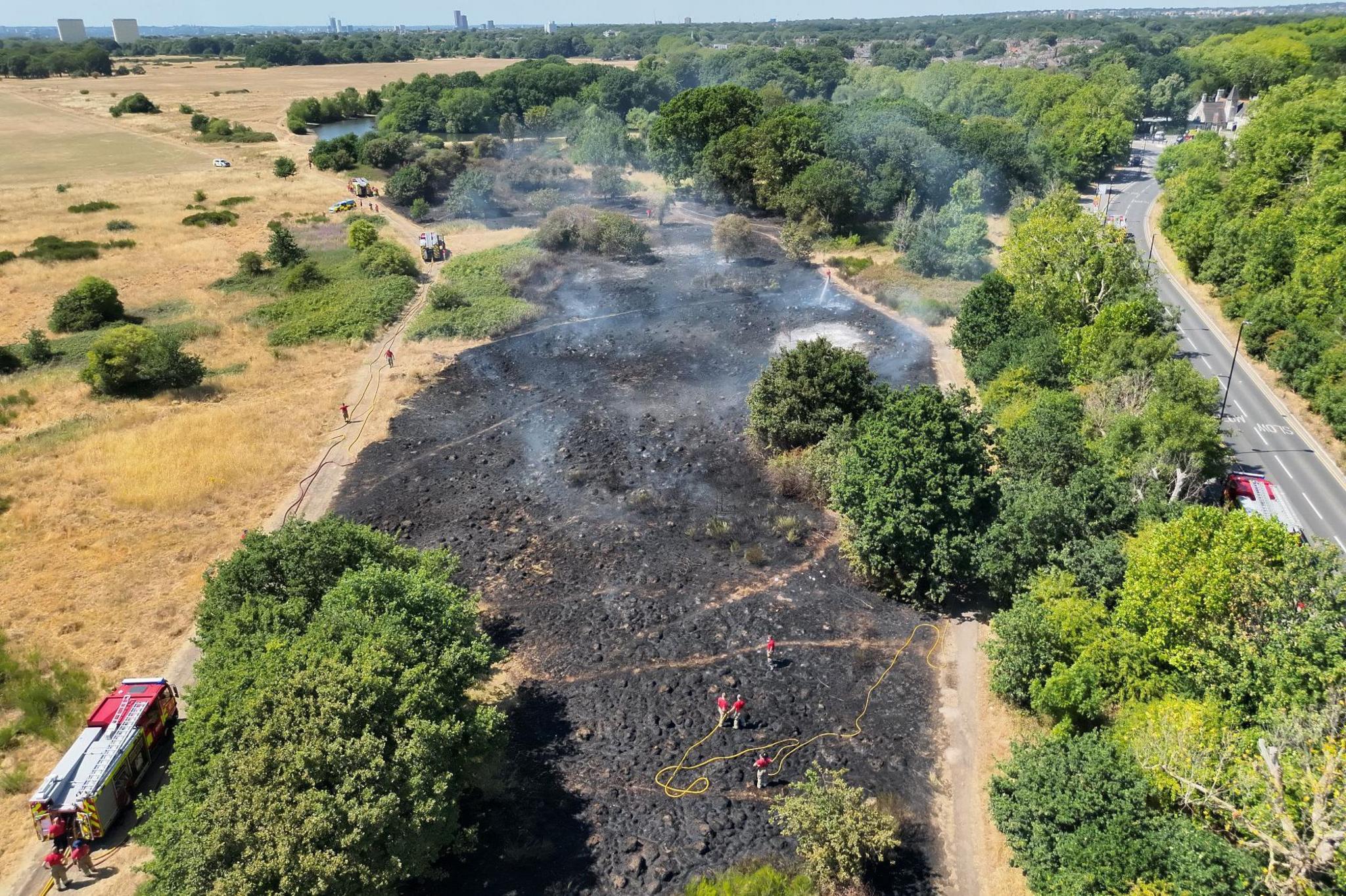
There were more wildfires in London this summer than in the summers of 2023 and 2024 combined
The LFB backed calls from the Mayor of London, Sir Sadiq Khan, for collective action to tackle the increased risk of wildfires.
"As the threat from wildfires continue to increase, it is important that there is continued investment to ensure we have the necessary tools available to address the challenges that lie ahead," Mr Smith said.
Sir Sadiq said: "Record funding from City Hall has been a game-changer, helping to introduce new equipment and trialling new response vehicles to keep Londoners safe.
"The huge increase in wildfires this summer has shown how vital it is that we take collective action to tackle this growing threat to the capital. That's why I am calling for better education for all Londoners, to help keep everyone safe."
Listen to the best of BBC Radio London on Sounds and follow BBC London on Facebook, external, X, external and Instagram, external. Send your story ideas to hello.bbclondon@bbc.co.uk, external
Related topics
- Published22 August
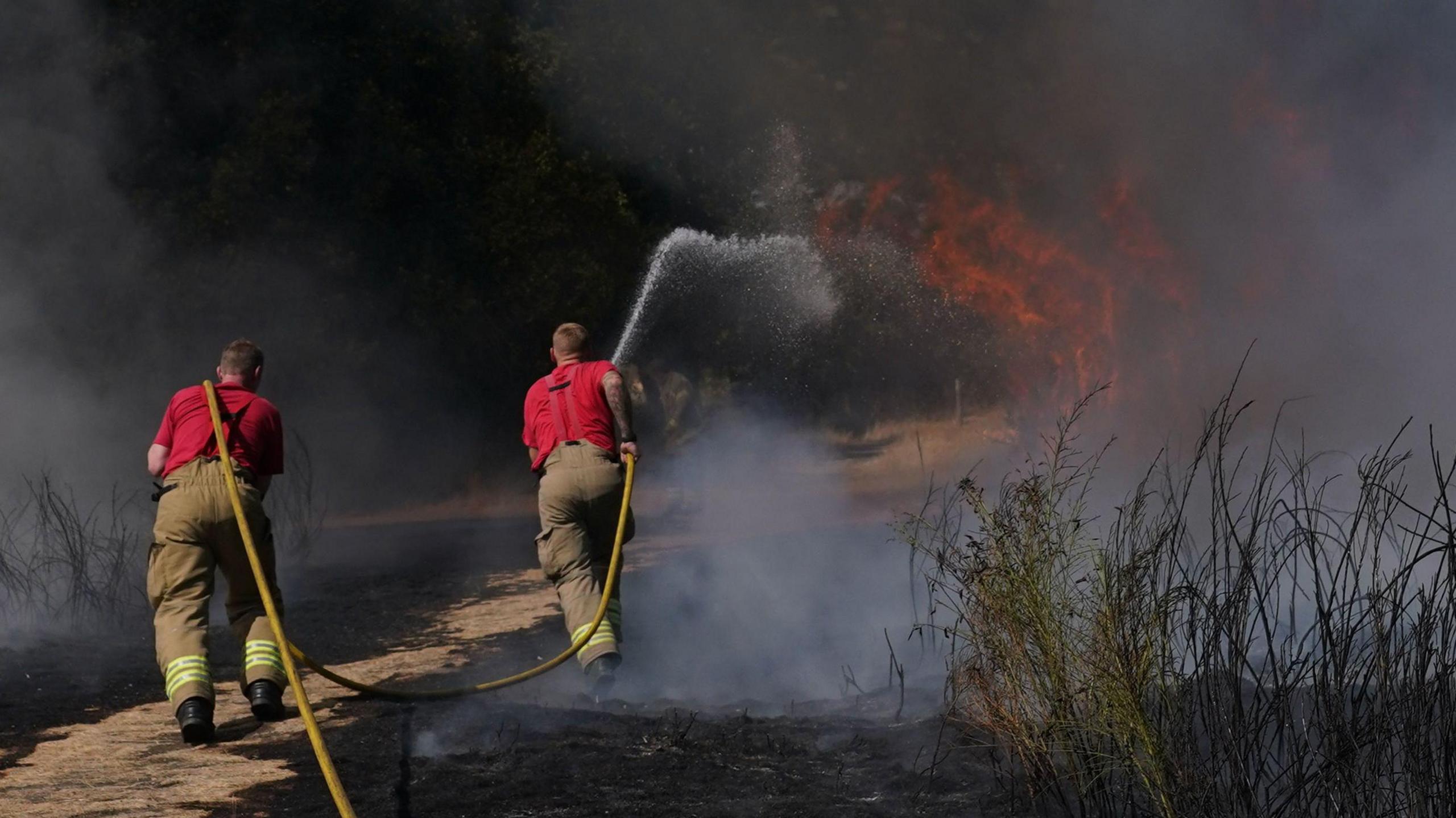
- Published15 July
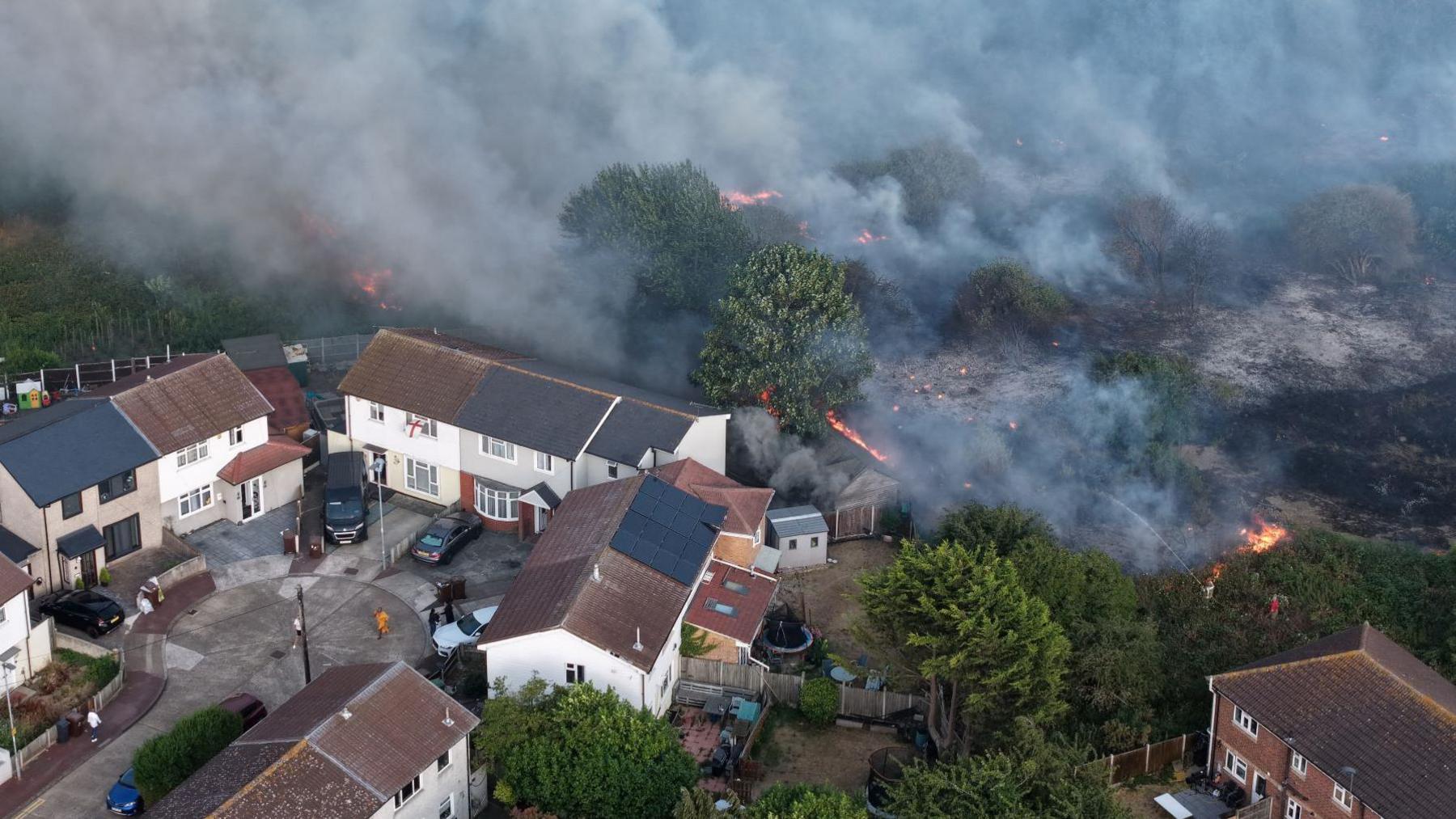
- Published10 July
